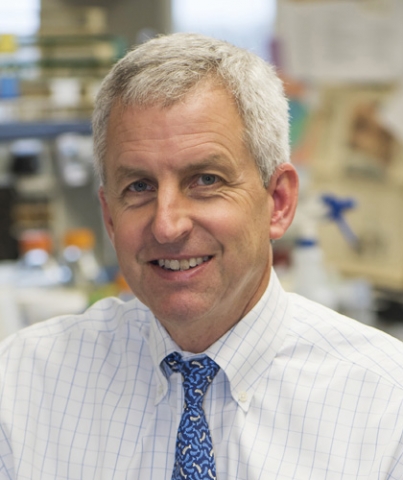
Date:
Location:
Speaker:
ABSTRACT:
We are developing tools of “biofabrication” that enable facile assembly of biological components within devices, including microelectronic devices, that preserve their native biological function. By recognizing that biological redox active molecules are a biological equivalent of an electron-carrying wire, we have developed biological surrogates for electronic devices, including a biological redox capacitor that enable bi-directional “electron” flow. We have also turned to synthetic biology to provide a means to sample, interpret and report on biological information contained in molecular communications circuitry. To do this, we have participated in the discovery of bacterial quorum sensing and have “rewired” its regulatory components so as to enable eavesdropping on bacterial crosstalk. Finally, we have developed synthetic genetic circuits that enable electronic actuation of gene expression. That is, using simple reconstructions, one can apply voltage on an electrode and directly actuate genetic responses and associated phenotypes. This presentation will introduce the concepts of molecular communication that are enabled by integrating relatively simple concepts in synthetic biology with biofabrication. Our presentation will show how engineered cells represent a versatile means for mediating the molecular “signatures” commonly found in complex environments, or in other words, they are conveyors of molecular communication. These efforts comprise part of the Robert E. Fischell Institute, a new Institute meant to catalyze research and foster translation into clinical practice.
BIO:
William E. Bentley is the Robert E. Fischell Distinguished Chair in Engineering and was the founding Chair of the Fischell Department of Bioengineering. At Maryland since 1989, Dr. Bentley has focused his research on the development of molecular tools that facilitate the expression of biologically active proteins, having authored over 300 related archival publications. Recent interests in synthetic biology and biofabrication exploit the components of bacterial quorum sensing for opening ‘communication’ between electronic devices and biological systems. He has mentored over 40 PhDs and 21 postdocs. He is co-PI of Maryland’s Center of Excellence in Regulatory Science and Innovation (CERSI), a comprehensive joint initiative with the FDA and Maryland’s Baltimore campus. He is also co-PI of the National Capital Consortium for Pediatric Device Innovation, joint with Children’s National Medical Center. Dr. Bentley is a Fellow of the ACS, AAAS, and AIMBE and is an elected member of the American Academy of Microbiology.



